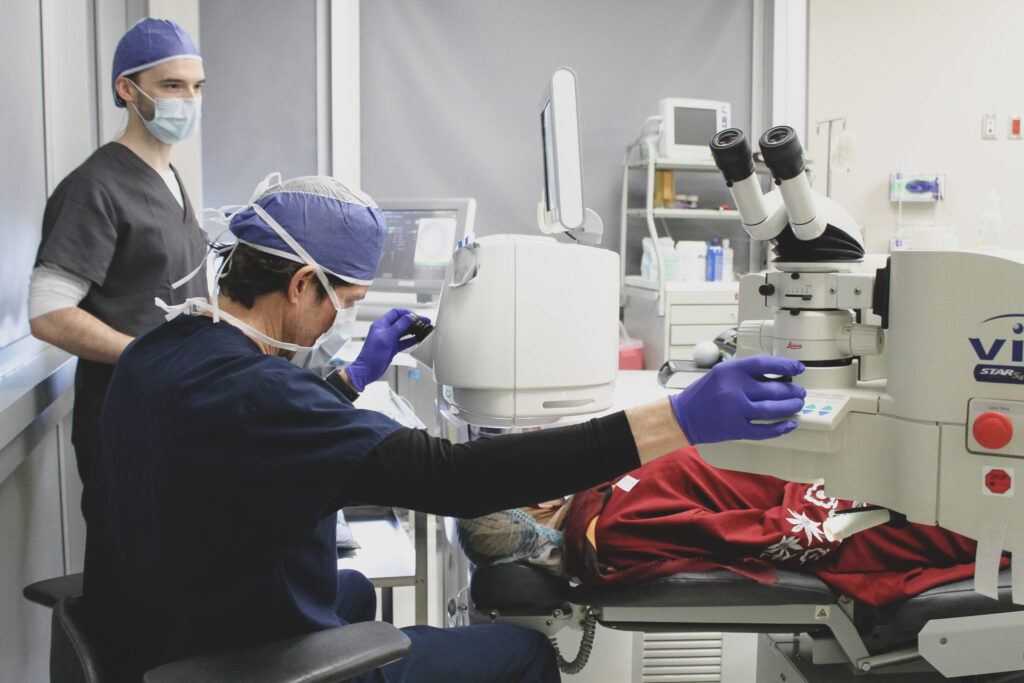Hello there! There are several write-ups about laser eye surgery. Even at that, people still conceive many questions about laser eye surgery. Laser treatment is different from other ways of treating visual problems.
Hence, you will need a vision correction if you’ve been battling myopia, hyperopia, and astigmatism. However, we don’t need to spend much time reminding you of what to do if you have a vision problem. Of course, we are writing about laser eye surgery Sydney. But the first step to take if you have any vision problem is to visit your eye doctor for an examination.
Then, after a series of tests have been carried out, you may undergo a surgical procedure. For example, you may be asked for cataract surgery or laser eye surgery. So, this write-up is for those who want to know some facts about laser eye surgery.
Here, we will discuss the likely questions you may have been thinking about. But it would be nice to create a piece of background knowledge. Hence, let’s start with the meaning of laser eye surgery.

What is laser eye surgery?
LASIK is the most popular kind of refractive eye surgery, or laser-assisted in situ keratomileusis. Since its initial invention in 1989, LASIK has emerged as the most widely used and reliable method of treating refractive eye problems. The corneal tissue is reshaped during the operation using lasers.
The front surface (cornea) of your eyes is reshaped using lasers during laser eye surgery or laser vision correction to improve your focus. It can treat astigmatism, long-sightedness, and short-sightedness.
Most adults over 18 are eligible for laser eye surgery. Ideally, your eye prescription has mainly remained unchanged for roughly two years. However, if you have a high prescription for eyeglasses or are older, lens surgery can be a better option.
Furthermore, myopic, nearsighted, or farsighted people can have their vision corrected by LASIK. Remember, LASIK stands for laser in-situ keratomileusis. One of many vision correction procedures alters the corneal tissue, the transparent front portion of the eye, to direct light toward the retina at the back of the eye. Don’t be confused.
Laser eye surgery is often called LASIK eye surgery. And, of course, this laser surgery procedure is different from cataract surgery.
Who are those that may need laser eye surgery procedures?
When the eye fails to properly focus the light on the retina at the rear of the eye, refractive errors take place. The cornea’s shape is typically to blame for this. Hence, below are people who may need laser eye surgery;
Those battling farsightedness
Another name for farsightedness is hyperopia. While other items may appear hazy up close, people with this disease can see objects in the distance. The cornea’s too-flat corneal curvature causes farsightedness. This can be fixed with laser eye surgery by altering the cornea’s shape to have a sharper curve.

Those battling nearsightedness
A nearsighted person, also called myopic or short-sighted, can see items close to them. But distant objects could seem hazy. The cornea’s excessively steep curvature brings this on. Medical practitioners can treat this through laser eye surgery by reshaping the cornea.
Those battling astigmatism
Astigmatism is characterized by an irregularly shaped eye in its sufferers. For example, an individual without the ailment has an eye that is round, like a soccer ball, whereas an individual with astigmatism may have an eye that is more like a football. In some situations, laser eye surgery might address this uneven corneal curvature.
How much does laser eye surgery cost?
Where you live, the surgeon doing the treatment, and the particular type of surgery you have all affect how much laser eye surgery will cost. The price of LASIK surgery per eye can range from $1,000 to $2,400.
Health insurance companies may pay for laser eye surgery to address diseases like cancer but frequently do not cover elective vision correction procedures like LASIK. However, a lot of insurance providers provide promotions or savings opportunities.
You might be able to utilize money from your flexible spending account, or health savings account to pay all or part of your procedure-related expenses.

What happens during healing from laser eye surgery?
Your doctor might provide a transparent shield or eye protection after your laser procedure. This shield aids in preventing damage to your eyes and keeps you from touching or scratching them.
Immediately following surgery, it’s normal to have some discomfort, soreness, itching, or burning. Your doctor might recommend several drugs to treat your pain. After surgery, it’s best to schedule some time at home to recover or nap. Do not scratch or rub your eyes.
Your doctor will also guide you when you can resume driving and other activities. Within 1 to 3 days of surgery, you should be able to resume the majority of your normal activities. Additionally, your surgeon will arrange a time for you to return for a follow-up examination.
Can complications arise after laser eye surgery?
Any surgery has a chance of complications, and laser eye surgery is no exception. The following are potential adverse effects or side effects of laser eye surgery:
- Infections
- Dryness
- Eye pains
- light rays or light sensitivity
What is the discomfort level of laser eye surgery?
Luckily, LASIK eye surgery is painless. Your surgeon will put numbing eye drops in both eyes just before the procedure. You can still feel some pressure during the process, but you shouldn’t experience any discomfort.
What are eyesight problems fixed by laser eye surgery?
LASIK, also known as laser-assisted in situ keratomileusis, is an option for glasses or contact lenses. To enhance vision, a specialized cutting laser is used during LASIK surgery to accurately alter the shape of the cornea, the dome-shaped transparent tissue at the front of the eye.
On a final note
Dear reader, we hope you’ve seen something inspiring here. We believe the above-listed information about laser eye surgery is enough to put you ahead. This refractive surgery is simple. Also, it is no longer news that laser eye surgery is cheap in Australia. You only need to hire a competent eye surgeon.
Finally, do you have something to say regarding this topic? Please feel free to share your opinion regarding this topic with us. Thanks for reading!
More to read: Cataract Surgery: Key Risks, Prevention, and Cure

